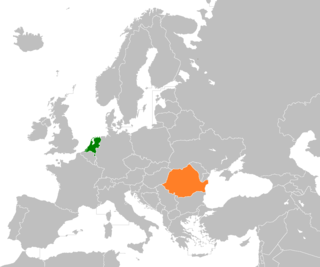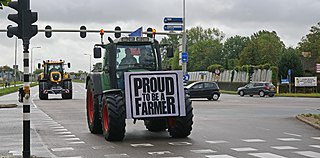Espionage, spying, or intelligence gathering is the act of obtaining secret or confidential information (intelligence). A person who commits espionage is called an espionage agent or spy. Any individual or spy ring, in the service of a government, company, criminal organization, or independent operation, can commit espionage. The practice is clandestine, as it is by definition unwelcome. In some circumstances, it may be a legal tool of law enforcement and in others, it may be illegal and punishable by law.

Khadamat-e Aetla'at-e Dawlati, also known by the acronym KhAD, was the agency in charge of internal security, foreign intelligence, counter-intelligence and the secret police of the former Democratic Republic of Afghanistan.

The Hague is a city and municipality of the Netherlands, situated on the west coast facing the North Sea. The Hague is the capital of the province of South Holland, and the city hosts both the International Court of Justice and the International Criminal Court. The Hague is the country's administrative centre and its seat of government, and while the official capital of the Netherlands is Amsterdam, The Hague has been described as the country's de facto capital.

The General Intelligence and Security Service is the intelligence and security agency of the Netherlands, tasked with domestic, foreign and signals intelligence and protecting national security.

Alexander Hill Everett was an American diplomat, politician, and Boston man of letters. Everett held diplomatic posts in the Netherlands, Spain, Cuba, and China. His translations of European literature, published in the North American Review, were influential for the Transcendentalism movement.
Operation Weasel is the name given to an alleged secret operation involving the governments of Nauru, New Zealand and the United States. The exact nature of the operation, if it did indeed exist, is subject to disagreement — most accounts link it to investigations into the sale of Nauruan passports, the defection of North Korean scientists to the West, or both. This was a classic example of what is known as a canary trap - a spy tactic of feeding sufficiently important intelligence to suspects to find leaks.

Sir Richard Adam Sykes, was the British Ambassador to the Netherlands, who was assassinated by the IRA in The Hague in 1979.

Ali-Reza Asgari was an Iranian general of the Islamic Revolutionary Guards Corps, deputy defense minister, and cabinet member of Iranian President Mohammad Khatami.

Netherlands–Romania relations are the bilateral relations between the Netherlands and Romania. The Ambassador to Romania is concurrently accredited to Moldova. Romania has an embassy in The Hague and honorary consulates in Heeg, Rotterdam and Venlo. The Netherlands has an embassy in Bucharest, honorary consulates in Cluj-Napoca, Timișoara and Constanța, and since 2016 an office in Chișinău in Moldova.

HYS The Hague is the ice hockey club in The Hague, Netherlands. Founded in 1933, the club's top team plays in the Dutch/Belgian BeNe League and competes annually in the Dutch National Championships and the Dutch Cup tournament.

This is a summary history of diplomatic relations of the United States listed by country. The history of diplomatic relations of the United States began with the appointment of Benjamin Franklin as U.S. Minister to France in 1778, even before the U.S. had won its independence from Great Britain in 1783.
Wilhelmina Ruurdina Dille, commonly known as Willie Dille, was a Dutch politician.

The bombing of the Bezuidenhout took place on 3 March 1945, when the Royal Air Force mistakenly bombed the Bezuidenhout neighbourhood in the Dutch city of The Hague resulting in the death of 532 citizens.

Netherlands–Suriname relations refers to the current and historical relations between the Netherlands and Suriname. Both nations share historic ties and a common language (Dutch) and are members of the Dutch Language Union.

Xu Jingcheng was a Chinese diplomat and Qing politician supportive of the Hundred Days' Reform. He was envoy to Belgium, France, Italy, Russia, Austria, the Netherlands, and Germany for the Qing imperial court and led reforms in modernizing China's railways and public works. As a modernizer and diplomat, he protested the breaches of international law in 1900 as one of the five ministers executed during the Boxer Rebellion. In Article IIa of the Boxer Protocol of 1901, the Eight-Nation Alliance that had provided military forces successfully pressed for the rehabilitation of Xu Jingcheng by an Imperial Edict of the Qing government:
Imperial Edict of the 13th February last rehabilitated the memories of Hsu Yung-yi, President of the Board of War; Li Shan, President of the Board of Works; Hsu Ching Cheng, Senior VicePresident of the Board of Civil Office; Lien Yuan, Vice-Chancellor of the Grand Council; and Yuan Chang, Vice-President of the Court of Sacrifices, who had been put to death for having protested against the outrageous breaches of international law of last year.

In March 2017, the Netherlands and Turkey were involved in a diplomatic incident, triggered by Turkish efforts to hold political rallies on Dutch territory and subsequent travel restrictions placed by Dutch authorities on Turkish officials seeking to promote the campaign for a 'yes' vote in the upcoming Turkish constitutional referendum to Turkish citizens living in the Netherlands. Such foreign campaigning is illegal under Turkish law.

Sándor Popovics was a Hungarian-Dutch association football manager and a professional footballer in the position of forward.

The Dutch farmers' protests are a series of demonstrations by Dutch livestock farmers, characterised by the use of tractors to block roads, and occupy public spaces. The protests were initially triggered in October 2019 by a proposal in parliament to halve the country's livestock in an attempt to limit agricultural pollution in the Netherlands, but protesting farmers have frequently told media that they are motivated by a perceived lack of respect for their profession by the Dutch populace, media and politicians. The protests combined several action groups and an amalgamation of larger goals, which included less government regulation for farmers, more air time for pro-farmer sentiments, and more policy to punish Shell and Tata Steel for their part in the emission crisis.

De Vloek was a squatted, self-managed social centre in The Hague, the Netherlands, between 2002 and 2015. Located on Hellingweg 127 in Scheveningen, beside the North Sea, the squat hosted workplaces, living spaces, a venue, and a vegan restaurant. The local council tolerated the occupation until 2014, when it decided to sell the building. A political struggle over the eviction began; some political parties supported the squatters and the Scheveningen Pier was briefly occupied as a protest action. A deal was made for the squatters to move to a former school building and the Vloek was eventually evicted in September 2015.
Paul Selier lived in the Hague in the Netherlands. Early in the morning of 2 February 2018, Selier encountered police officers in Waddinxveen and died whilst being arrested. A year later, the official investigation announced that excessive police violence had not been used and Selier had taken cocaine.
















